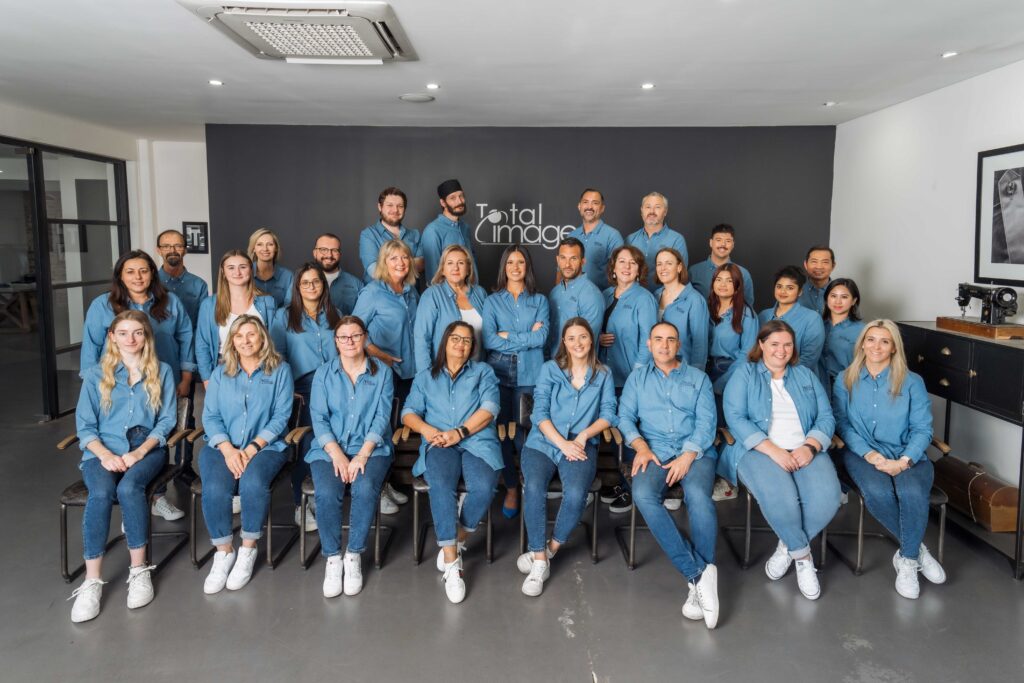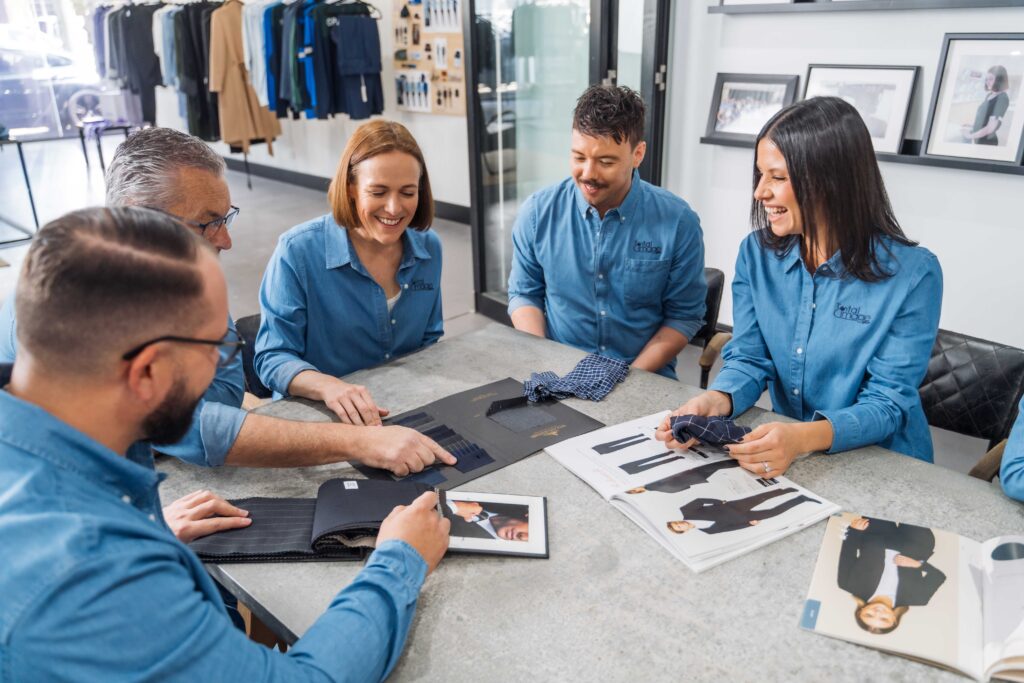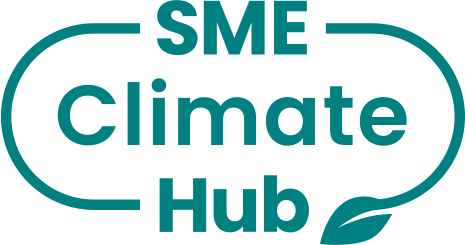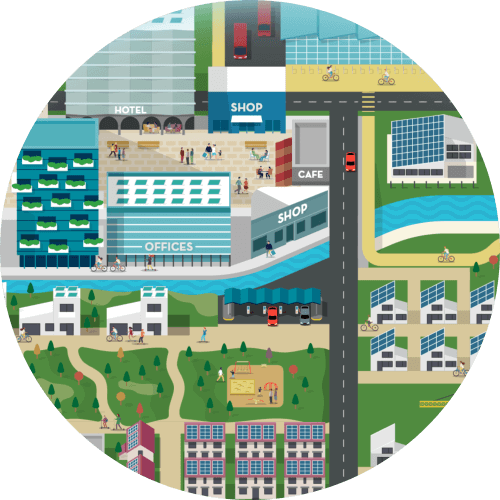Total Image Group: Stitching Sustainability into Every Thread
Sustainability isn’t just a box to tick for the Australian based small business, Total Image Group (TIG). It’s a driving force behind their operations. As a leader in the textile and uniform industry, TIG has taken bold steps to reduce their environmental impact while setting an example for others in a sector known for its effect on the planet.

From innovative product design to overhauling supply chains, TIG is reimagining what’s possible when sustainability takes center stage. They have redefined the very fabric of their business, weaving eco-conscious practices into every thread. This transformation isn’t just a business decision. TIG knows the textile industry has a big impact on the environment. Seeing the effects of unsustainable practices firsthand, they are committed to reducing their carbon footprint and offering their clients sustainable options.
“We recognise the power of our reach and the opportunity to drive meaningful change. By prioritising sustainability, we aim to inspire others to embrace more responsible practices—both in the workplace and at home—while presenting a thoughtful, eco-friendly alternative to fast fashion,” says Pamela Jabbour, Founder and CEO of Total Image Group.
Stitch by Stitch: How TIG is Reducing Their Climate Impact
TIG made the SME Climate Commitment in May last year, marking a pivotal step towards a more sustainable future. Since then, they have made use of the support and resources available through the SME Climate Hub, turning ambition into action, and building a more responsible business model which ultimately reduces emissions.
In particular, the SME Climate Hub’s carbon footprint calculators and emissions reduction guides have been game-changers for TIG. These tools have empowered them to set clear targets, track progress effectively, and create a focused and accountable roadmap to limit their impact on the planet.
The SME Climate Hub educational resources have also been a cornerstone of TIG’s climate journey, providing fresh insights and bolstering their sustainability practices. During SME Climate Hub events, they’ve connected with other SMEs from around the world to discuss their climate impact journeys: “The events are great, as they allow us to connect with like-minded professionals facing similar challenges.”
But how is TIG turning its climate ambition into real progress? Knowledge gained through the SME Climate Hub has informed TIG’s application for B Corp certification, and they have made a commitment to a Science-Based Target to reduce greenhouse gas emissions by 42% by 2030!
Threading the Path to Lower Emissions
Despite the progress they have made, TIG’s journey towards sustainability hasn’t been without its challenges. As a reseller in a complex supply chain, enforcing sustainable practices across all operations has tested their adaptability and resilience. Ensuring full transparency—from the origins of cotton or wool to the source of recycled plastic bottles for use in materials—remains a significant hurdle, which is made even more difficult by the uniform industry’s often slim profit margins.
Yet, rather than seeing these obstacles as roadblocks, TIG sees them as opportunities to grow, and push for lasting change. “Challenges are opportunities for growth and a chance to dive deeper and deeper. We are committed to collaborating with suppliers and partners to develop cost-effective, sustainable solutions that align with our goals,” says Margarita Wade, National Business Development and Sustainable Lead.
This commitment is already translating into action. Here are just some of the steps TIG has taken so far:
- Recycling soft plastics: Since August 2023, TIG has diverted 405k of plastic waste from landfill, preventing an estimated 51,804kg of CO2 emissions.
- Launched a supplier questionnaire: TIG assesses suppliers’ sustainability credentials, ensuring their manufacturers align with ethical and environmental standards.
- Introduced fully compostable uniforms: Made from LENZING™ Modal, an innovative low impact fabric.
- Committed to a Science Based Target to reduce emissions by 42% by 2030.
By putting sustainability at the heart of everything they do, TIG is proving that even in a competitive industry, change is possible.

Weaving Their Tapestry of Change
TIG’s commitment to sustainability is not only shaping their operation, but it’s strengthening client relationships, enhancing brand trust, and creating measurable environmental benefits. Clients appreciate their transparency and dedication to the initiatives such as the “No Uniform to Landfill” pledge, which ensures old garments are responsibly recycled.
Internally, TIG are fostering a strong culture of engagement by integrating monthly Environmental, Social, and Governance (ESG) focused programs that empower staff to actively contribute to TIG’s climate journey:
- “Clean Up Street Day”: A hands-on initiative where staff come together to remove waste from their local community.
- Waste and recycling awareness programs: Encouraging employees to bring soft plastics from home for recycling and promoting responsible disposal habits.
- Sustainability education sessions: Monthly internal workshops covering key sustainability topics, from ethical sourcing to carbon reduction strategies.
- Sustainable workplace improvements: Office-wide initiatives such as energy reduction policies, solar-powered fans, and efforts to eliminate single-use plastics.
These programs create a workplace where sustainability isn’t just another corporate goal – it’s a shared responsibility to make a difference.
“One key lesson we’ve learned is the importance of collaboration, whether with suppliers, customers, or internal stakeholders. Sustainability cannot be achieved in isolation, so it’s crucial to have buy-in from all levels of the organisation.”
This collaborative mindset isn’t just for internal stakeholders – it extends to their business partnerships too. TIG actively supports businesses on their sustainability journeys, offering practical advice on ethical uniform solutions, responsible sourcing, and reducing waste.
“Our advice to other businesses is to start where you are, build from there, and take a long-term approach. Don’t be discouraged by complexities or feel overwhelmed thinking you don’t know enough or where to start—just take the first step, gain confidence, and keep learning and implementing,” says Pamela Jabbour, Founder and CEO.

Guiding the Needle Toward the Future
At Total Image Group, progress is driven by continuous reflection and improvement. Through monthly reviews, they monitor progress, refine strategies and push boundaries to ensure their impact remains positive and measurable.
“We’ve learned that even small changes can have a significant impact over time. Starting with practical, incremental steps—such as reducing energy consumption in the office or offering more sustainable products—can help build momentum,” says Margarita. “Small steps do make a difference. We now understand that there is no final destination—no box to tick to say everything is done. It is, and will always be, an ongoing project, with new and innovative solutions emerging.”
TIG is proof that sustainability and business success go hand in hand. By integrating eco-conscious practices into every aspect of their operations, they’re showing the world that small actions can lead to change. Whether it’s through innovative textiles, smarter logistics, or engaging staff and clients in the journey, TIG is stitching sustainability into every thread of their business.
Time for your SME to make a change?
TIG’s experience proves that every business can make an impact. By leveraging resources like the SME Climate Hub, setting clear targets, and taking actionable steps, companies can drive change while strengthening their brand and operations.
If your business is ready to take the next step towards climate action, make the SME Climate Hub commitment today and be part of the solution.

 Go back
Go back



